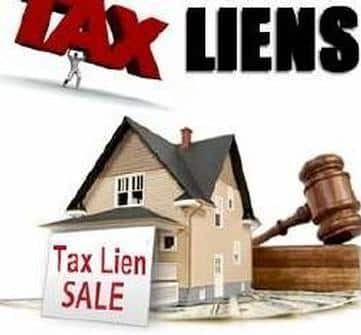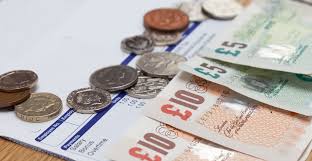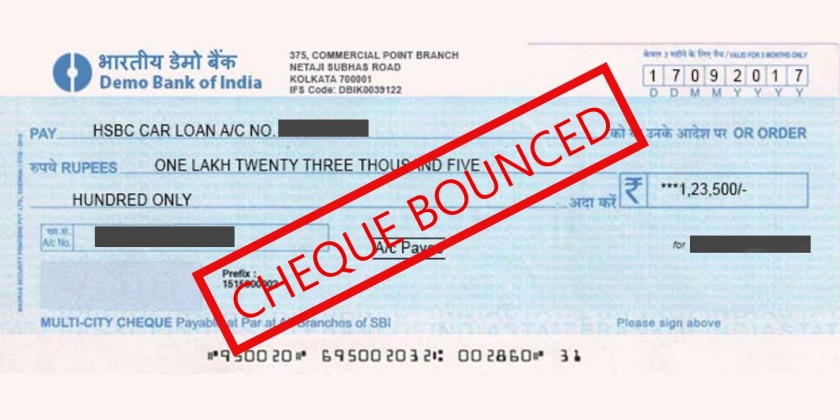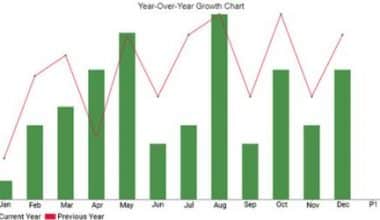If real estate property taxes are not charged, they will be sold at a tax lien sale, which is a public auction held each year in NYC, normally in November. However, some persons still ask this question “what is a lien sale?”. Others still don’t know how to go about property tax lien sale or lien car sales in NYC. This will be our guide on lien sale cars and an auction on properties with no tax charge.
What is a Lien Sale?
A lien sale is the sale of a claim or a hold placed on an asset to settle an unpaid debt. Lien sales are usually taken as public auctions and include real estate, cars, and other personal property.
Contractors, subcontractors, and suppliers can place a lien on a piece of property they worked on while awaiting payment for services rendered, depending on state laws.
What is a Tax Lien Sale?
A tax lien is a legal claim against the property of a person or company that has failed to pay federal taxes. When a landowner or homeowner does not pay their property taxes, for example, the city or county where the property is located has the power to place a lien on the property.
The lien is a civil claim against the property for the money owing that has not been paid. A lien on a property prevents it from being sold or refinanced before the taxes are paid and the lien is lifted.
The municipality creates a tax lien certificate when they issue a lien. This represents the amount of the debt on the land, plus any interest or penalties due. After that, the certificates are sold off to the highest bidder. If it’s a small house, investors can buy tax liens for as little as a few hundred dollars. However, the rest of them are significantly more expensive.

NYC Tax Lien Sale
The City Council extended the NYC tax lien sale for another year on 28th January. However, exempted certain landowners who were devastated by the pandemic.
Since struggling to compromise on comprehensive legislation, the City Council approved a bill. This bill will renew the auction of liens on unpaid property taxes, water and sewage bills for one year. This is in contrast to the normal four, in a 39-8 vote.
The bill varies significantly from a bill proposed by Queens Councilmember Adrienne Adams in December. The bill extends the lien auction for another four years and grants exemptions depending on property assessed value.
Housing advocates and others opposed the bill, which was introduced at the behest of the de Blasio administration. They were arguing that the sale has a long history of negatively impacting homeowners of color.
The new bill exempts more property owners. Also, it establishes a 12-person task force to investigate the possibility of moving unpaid taxes to municipal land trusts, land banks, and mutual housing associations.
By November 1, the task force must present its conclusions and recommendations. The bill also raises the debt requirement for assets to be eligible for a lien sale. The threshold for one- to three-family homes, for instance, has a raise from $1,000 to $5,000.
Last year, elected officials regularly delayed the lien auction, which had been scheduled for May. Governor Andrew Cuomo suspended all lien sales until Jan. 29, although the legislation regulating the city’s sale was due to expire at the end of 2020. Cuomo signed a bill, in addition to extending residential eviction rights, stopping lien sales for owners in financial distress until May 1.
Those who voted against the bill during the meeting praised Adams.
Lien Sale Cars
The lenders’ names will be on the lien sale certificate if you purchase cars with a loan from a financial institution. A lien is a legal right a borrower has on some property. It serves as a promise of an underlying duty, such as the repayment of a home or car loan. If they don’t clear the debt, the creditor has the right to seize the asset.
The lien holder’s name is removed from the title when the debt on the car is paid in full. The legal owner will then sell the vehicle by filling out a few papers. The owner can exclude the lien holder from the article if he chooses to sell the car before paying fully. Hence, the new buyer will get the ownership. Continue reading to learn more about how to sell your cars with a lien sale.
Selling a Car Through a Dealer
The simplest way to sell a vehicle with a lien is through an auto dealership, particularly trade-in cars. To facilitate the transfer of ownership, dealers work directly with the lien holder listed on the title. This is typically a credit union or a bank.
The dealer arranges for the full payment of the loan balance using either the proceeds from the trade-in vehicle. One can also do so by applying the payoff sum to the loan for purchasing the car in this process.
The main drawback of sales of a car with a lien on the title through a dealership is that the price charged. For trade-in cars, it’s typically less than what would be realized by selling them privately. However, the lien sale process to a private purchaser requires some additional work from the seller. To start, the seller should contact the lender to ascertain the full sum necessary to repay the loan to meet the debt and to delete the lienholder from his/her title, including any additional charges.
Carry out the Sale at the Lender’s Office.
This is most likely the quickest way to sell the car, pay off the loan, remove the property lien, and transfer ownership. After an agreement has been made, this option is also the easiest way for the seller to collect proceeds from a transaction involving a lien on the certificate of title.
Either the buyer or the seller may pass funds to the lender to pay off the debt, and paperwork to transfer possession to the buyer can be completed in one sitting, typically. Call ahead, whether it’s a large or small lender, to ensure someone in the local office is willing to help with the deal. Often, make certain that both you and the buyer are present during the transaction.
While this is the most convenient alternative, there are some disadvantages to performing the transaction at the lender’s office. The most noticeable is the element of convenience. It may not be the most convenient place for both you and the buyer to visit, which means you and/or the buyer would have to drive if the office isn’t nearby—especially if the lienholder is an out-of-state lender.
Buyer Charged the Lien
If the buyer is unable to settle the transaction at the lender’s office, he or she can pay the lender directly by wire transfer or cashier’s check. Any of these strategies can fulfill a lien sale and also be used to pay the seller’s remaining balance.
This choice provides the customer with an additional degree of assurance. This is because the funds can be transferred directly to the lender. Thus, it eliminates the need to give the sales proceeds to the seller, who then passes the funds to the lender to satisfy the loan.
How to Make Money from a Property Tax Lien Sale
Investors looking for tax lien investing opportunities should contact their local tax revenue authority who is in charge of collecting property taxes. There are currently 2,500 jurisdictions that offer public tax debt, including cities, townships, and counties.
While not every state allows for the public sale of delinquent property taxes, if the state does allow for the public auction of the unpaid property tax bill, investors should be free to select when and where these taxes are disclosed for public viewing. Property tax sales must be advertised for a set period of time before the sale. The owner of the property, the legal description, and the amount of delinquent taxes to be auctioned are typically listed in the adverts.
Investors who purchase property tax liens are usually obligated to pay back the entire amount of the lien to the issuing municipality right away. With the exception of two states, the tax lien issuer collects the principal, interest, and penalties; pays the lien certificate holder; and then collects the lien certificate if it is not on file. The property owner must repay the investor the full amount of the lien plus interest, which varies by jurisdiction but is normally between 10% and 12%. In rare cases, the investor’s premium for the lien may be added to the amount that is repaid.
The repayment period typically ranges from six months to three years.
In most circumstances, the owner is able to pay off the lien completely. If the owner fails to pay the lien by the date, the investor, like the municipality, has the ability to foreclose on the property, albeit this occurs very seldom.
Passive Investing Through an Institutional Investor
Because tax lien investing necessitates extensive study and due diligence, it may be worthwhile to consider investing passively through an institutional investor who is a member of the NTLA. NTLA members receive around 80% of all tax lien certificates sold.
If you want to join the NTLA, it costs $500 per year (for investors with less than $1 million). Membership fees for institutional investors range from $2,000 to $10,000, depending on the size of their investment portfolio. Institutional investors can earn annual returns ranging from 4% to 9%. The NTLA can help connect prospective investors who join the NTLA with institutional investors who specialize in tax lien investing.
Disadvantages of Investing in Property Tax Lien
Although property tax liens can offer high rates of return, investors should do their homework before entering this market. Tax liens are often not suitable for first-time investors or those with limited experience or knowledge of real estate.
Investors should avoid purchasing liens on properties that have suffered environmental harm, such as one where a gas station discharged toxic waste.
#1. Neglected Real Estate
Investors must also become intimately acquainted with the actual property on which the lien has been placed. This can assist them in ensuring that they will be able to collect the money from the owner. Regardless of the advertised interest rate, a decaying property in the center of a slum community is usually not a wise deal. The property owner may be unable or unwilling to pay the owed tax. Properties with any type of environmental degradation, such as toxic or hazardous compounds that were deposited there, are generally undesirable.
#2. This is not a passive investment.
After receiving their certificates, lien owners must understand their responsibilities. Typically, they must notify the property owner of their purchase in writing within a certain amount of time. If payment has not been made in full by the end of the redemption period, they are normally compelled to send them a second letter of notification.
#3. Tax Liens Have an Expiration Date
Tax liens are not indestructible instruments. Many have an expiration date after the redemption period has ended. When a lien expires, the lienholder is no longer able to collect any unpaid sum. If the property falls into foreclosure, the lienholder may discover other liens on the property, making obtaining the title hard.
#4. Competition
Property liens have piqued the interest of many commercial institutions, including banks and hedge funds. As a result, they have been able to outbid their competitors and drive yields down. This has made it more difficult for individual investors to discover valuable liens, and as a result, some have given up. However, several funds that invest in liens are now available, and this might be a useful method for a rookie investor to get into this field with a lower degree of risk.
How do I contest the results of a lien sale?
If you believe that the results of a lien sale are incorrect, you can contest the outcome. This may involve filing a complaint with the authority that conducted the lien sale, providing evidence to support your claims, and possibly taking legal action.
What are the legal requirements for conducting a lien sale?
Lien sales are governed by state and local laws, which vary by jurisdiction. Requirements may include obtaining a court order, properly advertising the sale, and following specific bidding procedures. It is important to understand the laws and regulations in your area before participating in a lien sale.
Can I get a refund on items purchased at a lien sale?
Refunds for items purchased at a lien sale are typically not available, as the sale is final. Before bidding on an item, it is important to thoroughly inspect it and understand its condition and value.
What is the process for retrieving items left at a lien sale?
The process for retrieving items left at a lien sale varies by jurisdiction, but typically involves paying any outstanding fees or debts owed, as well as any fees associated with storing the items. It is important to contact the authority that conducted the lien sale to understand the specific requirements and procedures for retrieving your items.
Can I get a warranty or guarantee on items purchased at a lien sale?
Warranties and guarantees on items purchased at a lien sale are typically not available. It is important to thoroughly inspect the items before bidding to understand their condition and value.
What happens if I don’t pay for the item I won at a lien sale?
If you fail to pay for an item you won at a lien sale, the authority that conducted the sale may take legal action to collect the funds owed. This may include filing a lawsuit, seizing assets, or placing a lien on your property.
What is the process for bidding on items at a lien sale?
The process for bidding on items at a lien sale varies by jurisdiction, but typically involves registering as a bidder, attending the sale, and participating in the bidding process. The items are typically sold to the highest bidder. It is important to understand the specific rules and procedures for bidding in your area before participating in a lien sale.
Lien Sale FAQs
What Is a Lien Holder?
A lienholder is a person or entity that has a legal interest in a piece of property, such as a car.
What Does It Mean If a Car Has a Lien?
A car lien serves as insurance for the lien holder. It gives the lienholder, normally a lender, the right to own the property in question if the borrower fails to meet their financial obligations. The person in possession of the vehicle is unable to dispose of the vehicle without the lien holder’s permission.
Can a Lien Holder Take Your Car?
A lienholder can take possession of your car if you stop making payments and default on your loan.
Is a Lien Holder an Owner Of the property?
The lien holder’s name appears on the certificate of ownership, but they are not the real owner of the car. You become the realistic owner of the car by buying it, while the lender only has a financial interest in the property.
How Do I Get Rid of a Lien Holder?
To evict a lienholder, you must demonstrate that the lien has been fulfilled. As a result, if the lienholder is the bank that funded your purchase, you must have evidence that you have paid off your car loan.
Conclusion
Liens are inconvenient, but they are a necessary part of the purchase and sale of property, such as vehicles. Contrary to common opinion, you can sell your car even though it is encumbered by a lien. While it may appear that you must go through some hoops, you may do so by performing the transaction through a broker, at the lender’s office, or by making the buyer pay the lender directly. You may also want to consider using a neutral third party, such as an escrow service, to eliminate the lien and pass the title to the new owner.
- FINANCIAL ADVISOR: Description, Jobs, Companies, Career, (+ Easy guide to becoming an Advisor)
- GREEN MARKETING: The A-Z Guide (+ Practical Examples)
- Financial assets: All you need to leverage effectively (+ best tips)
- Property Management Business: All You Need to Start From Scratch (+ a Workable Model)
- FINANCIAL STATEMENT OF A COMPANY: BEST SAMPLES AND TEMPLATES TO LEARN FROM






